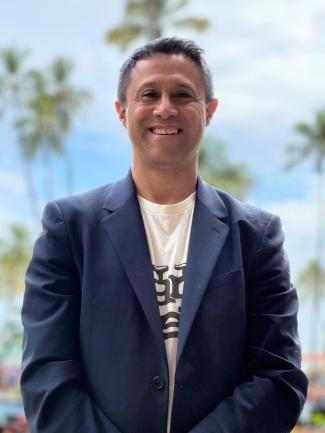
Office location:
North Classroom 3025C (3rd Floor)
Office hours:
Spring (2026) Tuesdays, 12:30pm-2:00pm (in-person) - (My Office) North Classroom 3025C (3rd Floor); Wednesdays, 11:30pm-1:00pm (Zoom)
Overview: I am a geographer whose research focuses on the intersections of climate-health, social vulnerability, disaster risk reduction, and climate justice, with regional interests in Latin America and underserved communities in the U.S. As an avid climate-health and climate and society researcher, my scholarship strives to elucidate how communities interact with the many facets of climate and how those interactions influence the health and social vulnerability of populations and places. I am also interested in understanding how public health and communities respond to and cope with weather, water, and climate-related hazards and disasters, as well as ethical and justice implications.
Research: I examine the environmental and social peculiarities of the equatorial Pacific Ocean phenomenon known as El Niño-Southern Oscillation as a way to understand the complexity of health and societal impacts associated with climate variability and extreme events. El Niño projects include cholera emergence and social vulnerability (Peru) and disaster capacity building in Latin America. The last aspect of my research investigates more broadly, climate and society interactions with an emphasis on early warning systems and epistemic justice. For example, I examine how countries respond to regional climate-related threats, how definitions of quantitative indicators affect disaster responses, and whose climate knowledge counts. Climate-health projects include spatiotemporal analyses of malaria (Peru) and ecosyndemics in South and Central America. Both involve characterizing vulnerability to multiple infectious disease risk. I also investigate social determinants of chronic conditions and mental health, including more recently, how COVID-19 coincides with spatial patterns. Although this work is focused on Colorado, future applications will be broader in geography and scope. Both areas of research build geographic frameworks for syndemic health theory. Inspired by collaborations with El Puente (Brooklyn, NY) and Protegete (Denver, CO), I also focus on community engagement and environmental justice; working with and understanding how local community-based organizations and residents take action. My work is published in interdisciplinary journals, such as Weather, Climate & Society, EcoHealth, International Journal of Disaster Risk Science, and Behavioral Medicine.
Teaching: As an educator, I teach from a cross-disciplinary perspective and strive to employ student-centered approaches. I develop case studies, foster group activities, and use innovative web-based technologies to enhance learning. Importantly, I raise justice-oriented questions about public health and environmental change. At CU Denver, I teach undergraduate courses in global demography, urban and environmental health, as well as teach a graduate course focused on theories/approaches in population health, integrating social sciences, climate and society, and ethics whenever possible. Currently, I co-lead the development of the new Climate Change Studies BA/BS, a career objective (an interdisciplinary climate and society program) I have been working on since I was an undergraduate at CUNY Hunter College and later a graduate student in Columbia's Climate and Society program.
Service: Much of my service work aligns with CU Denver’s equity-oriented mission. I served on the Equity Task Force and CLAS Working Group; and as a Faculty Fellow at The Center for Faculty Development and Advance (CFDA), focused on the National Center for Faculty Development and Diversity (NCFDD)-related resources. Professionally, I serve on the editorial board for Spatial and Spatio-temporal Epidemiology and as a climate and society expert for the Geography Commission of the U.S. National Section of the Pan American Institute of Geography and History (PAIGH).
Community Engagement and Higher Education: I am strongly committed to fostering community engagement in higher education and supporting community efforts for environmental justice. Motivated by experiences with initiatives, such as the Louis Stokes Alliance for Minority Participation (LSAMP) (as undergrad), the King-Chávez-Parks Future Faculty (as Ph.D. candidate), and Consortium for Faculty Diversity (as postdoc), I advocate for community-engaged programs to mentor and support students and faculty.
